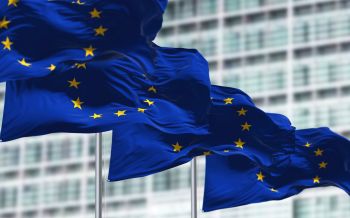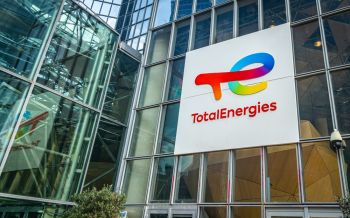The second week of April saw key legislations for energy and climate, including the EU Methane Regulation, backed by MEPs in the European parliament, just as concerns over Europe’s security of gas supplies returned, causing an uplift to prices, this time due to an alleged attack by Russia on storage infrastructure in western Ukraine. However, Ukrainian state oil and gas company Naftogaz said the fresh attack caused no serious damage.
The EU Methane Regulation, voted for by MEPs on Wednesday, aims to cut the EU’s methane emissions and covers direct methane emissions from the oil, fossil gas and coal sectors, as well as biomethane once it is injected into the gas network. It also imposes thresholds for methane intensity on imported fossil fuels, including piped gas and LNG.
Also on Wednesday, the European Commission approved a EUR 2.2 billion (USD 2.36 billion) German scheme to help industrial companies switch from fossil fuels to greener alternatives including hydrogen. It is one of several national support schemes for decarbonising heavy industry in Europe approved by the EC.
Other major news included TotalEnergies saying it had postponed final investment decision (FID) on its 5.6 mtpa Papua LNG project until 2025, citing challenges to obtain commercially viable engineering, procurement and construction contracts. Meanwhile, in his annual letter to shareholders, Jamie Dimon, the chief executive of JP Morgan, the world’s number one investment bank, came out fighting in the corner of the oil and gas sector, taking issue with the impacts on trade due to the Biden administration’s January decision to pause new US LNG export permits.
On Tuesday, six North Sea countries – Belgium, the Netherlands, Germany, Norway, the UK and Denmark – signed an agreement to cooperate on protecting infrastructure, including gas pipelines against sabotage. The declaration was signed in the wake of the damages to the Nord Stream pipelines and Balticconnector in the Baltic Sea, which happened in 2022 and 2023 respectively.
MEPs back key legislations for energy and climate, including methane rules
Russia launches new attack on Ukrainian underground storage facilities: Naftogaz
EC backs EUR 2.2bn German plan to cut industrial fossil fuel consumption
TotalEnergies postpones FID on Papua LNG, signs MoU with Sonatrach
JPMorgan boss Jamie Dimon: LNG is an ‘economic boon’ for the US
North Sea nations to beef up energy infrastructure protection against sabotage
Deutsche ReGas granted permit to operate Baltic Sea LNG terminal at Mukran
Energean closes Morocco farm-in as country hopes for fruitful gas production future
EU priority list for energy projects released as scrutiny period ends
Shell plans to ‘explore other options’ beyond 2025, including listing, to achieve shareholder value
Subscription Benefits
Our three titles – LNG Business Review, Gas Matters and Gas Matters Today – tackle the biggest questions on global developments and major industry trends through a mixture of news, profiles and analysis.
LNG Business Review
LNG Business Review seeks to discover new truths about today’s LNG industry. It strives to widen market players’ scope of reference by actively engaging with events, offering new perspectives while challenging existing ones, and never shying away from being a platform for debate.
Gas Matters
Gas Matters digs deep into the stories of today, keeping the challenges of tomorrow in its sights. Weekly features and interviews, informed by unrivalled in-house expertise, offer a fresh perspective on events as well as thoughtful, intelligent analysis that dares to challenge the status quo.
Gas Matters Today
Gas Matters Today cuts through the bluster of online news and views to offer trustworthy, informed perspectives on major events shaping the gas and LNG industries. This daily news service provides unparalleled insight by drawing on the collective knowledge of in-house reporters, specialist contributors and extensive archive to go beyond the headlines, making it essential reading for gas industry professionals.





